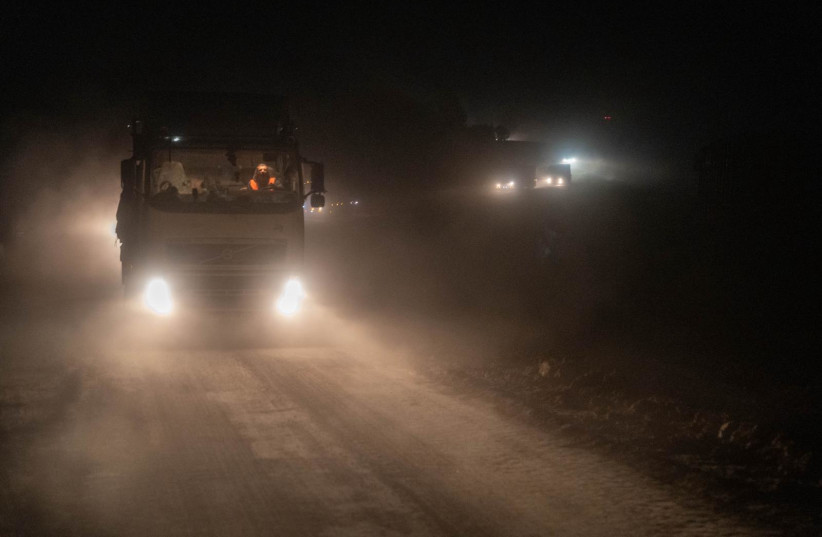One question that many are scratching their heads about is how the new maritime aid that started to flow this week to Gaza from Cyprus, courtesy of the World Central Kitchen organization and the UAE, actually works, given that Gaza currently lacks a functioning port.
During the height of the peace process in the 1990s, Israel agreed to the Palestinians building both an airport and a seaport in Gaza.
However, with the advent of the Second Intifada in October 2000, the IDF destroyed both ports, and they have not been rebuilt since.
How, then, does a very large ship with close to 200 tons of humanitarian aid physically deliver the aid?

In several weeks to a couple of months, the US will have established special artificial floating port platforms off the Gaza coast to receive and transfer aid.
But what happens now and until then with the WCK-UAE maritime aid effort, which is months ahead of the larger US effort later?
What happens until the aid reaches Gaza?
According to the IDF, after the aid is checked by Israel in Cyprus, as the large Dovrah/barge-style ship carrying the aid gets closer to the Gaza shore, it is partially pulled by smaller ships.
The Gaza waters near the beach are shallower than in some other Israeli beach areas, so the ship is able to get to around 400-500 meters from the coast, operating in a more normal fashion.
From there, it is pulled further and eventually anchored into the shallow sandwater area.
After that, the aid is unloaded onto the beach somewhere in the central Gaza region - but with the exact location still classified to avoid potential attempts by Hamas to interfere - and then moved by trucks to designated locations for distributing the aid throughout the Strip.
The IDF hopes that this will shorten its travel through Gaza and help avoid specific problem areas where the aid may be stolen, attacked, or otherwise interfered with.
The designated beach area is secured by IDF air, land, and sea forces so that no unauthorized personnel can get anywhere near the aid transfer operation.
This current pilot project may also help learn lessons for the larger US maritime aid project to make its logistics more successful.
More broadly, the goals of the project are not only to provide aid to Gazans but to cut Hamas out of the chain of food provision, another way to physically break its control over Gazans as well as to encourage their ability to imagine a future in which the group terrorizing both them and Israel is replaced.
